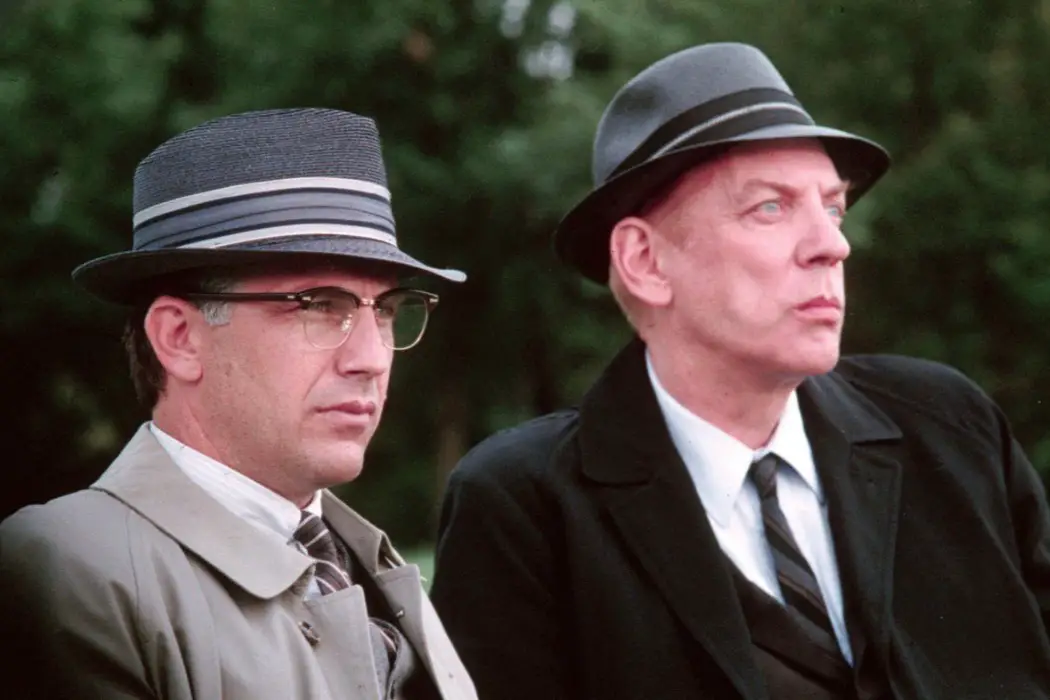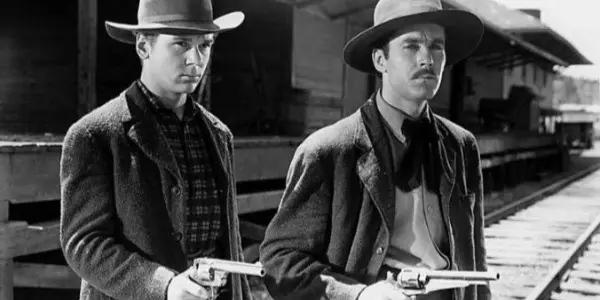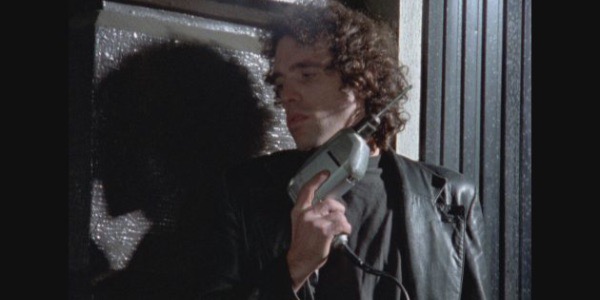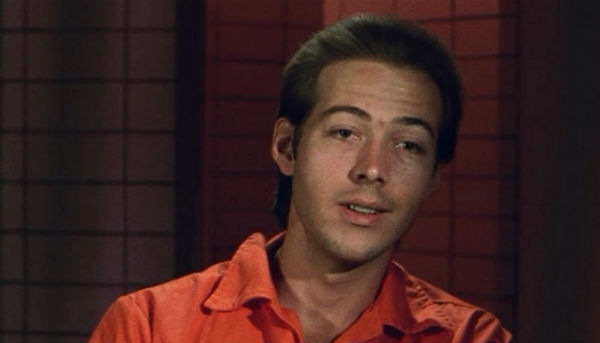Law And Order: Examining Films That Had An Impact On Legislation

Liam is a freelance culture writer based in London.
We all know watching films can help us escape from our everyday lives. From laugh-out-loud comedies to high-concept thrillers, the buzz of watching the latest hit movies on the big screen never gets old. Many of these releases fade away once they’re done tearing up the box office and filling seats at the cinema. But sometimes, a film comes along and cements its place in history.
Believe it or not, there are a number of films that have helped paved the way for genuine change in social systems, laws and policies. Here are a few examples of these films that had an impact on legislation as well as culture.
Jesse James (1939)

The western genre has made somewhat of a resurgence in recent years, with Bone Tomahawk and Slow West being some of the newer offerings. Jesse James, directed by Henry King, is one of the early western films. It’s based on the life of the legendary outlaw, Jesse James (played by Tyrone Power), and it was one of the biggest hits that year. This shoot-em-up western became notorious for a scene in which two stuntmen on horseback jump off a cliff. Of course, there was no CGI back in 1939 so leaping from a cliff meant doing it for real, and while the footage is impressive, one of the horses tragically fell to its death.
Public outcry over the scene led to the American Humane Association’s monitoring of filmmaking to ensure the safety of animals. The AHA enforced new rules for the use of animals in films, and it became a requirement for every film production to comply with the guidelines. When productions meet the AHA’s gold standards, they’re awarded the famous seal of approval in the end credits, “No Animals Were Harmed in the Making of This Film”. Jesse James ultimately contributed to the law granting films that infamous disclaimer.
The Snake Pit (1948)

Insanity has always been a common subject in film and it can often be difficult to portray. That’s why the writers and director of The Snake Pit spent time observing mental health patients before producing their film. The Snake Pit is one of the first Hollywood films to use mental illness as its main theme. It tells the story of Virginia Cunningham (played by Olivia de Havilland), who is hospitalized after having a mental breakdown and while there, she suffers abuse at the hands of the staff. The film draws attention to the horrific, dehumanizing treatments of mental institutions in that era.
The Snake Pit is based on the best-selling book, an autobiography of a woman’s struggle with psychosis. While the novel was also important for highlighting the terrible conditions in state asylums, the film spurred the US to pass legislation to ensure better conditions for mental patients. “Wisconsin is the seventh state to institute reforms in its mental hospitals as a result of Snake Pit,” wrote Herb Stein of the Daily Variety in 1949.
Victim (1961)

When Victim was released in 1961, it became one of the few films to shift widespread views on homosexuality. Victim starred Dirk Bogarde as a closeted gay lawyer who’s being blackmailed, and it was the first feature film in which a gay character utters the word “homosexual”. It is a landmark film and has left behind a massive legacy, including helping to change Britain’s law on homosexuality. The Sexual Offenses Act of 1967 decriminalized homosexual relations. Victim played an influential role in softening the public’s attitudes toward gay people.
Victim’s liberal messages cut through the clutter of prejudice and Darren Nesbitt, a British actor who featured in the film, said, “It wasn’t shouted in the streets, but there was a realization that the way homosexuals were treated by the law was totally unacceptable.” Victim wasn’t a major box office hit, but it remains a highly significant film.
The Driller Killer (1979)

You may be familiar with the term “video nasty” but if not, here’s a brief explanation. Video nasty is a catch-all term for a number of violent films released on video cassettes. These films became notorious for their graphic scenes and they were damned by the media. Abel Ferrara’s The Driller Killer, a horror film about an artist who turns insane, was one of these video nasties. Along with a bunch of other films, including Cannibal Holocaust and Snuff, it led to the passing of the Video Recordings Act in 1984. This law meant all works had to be rated with a certificate and it spelt the end for The Driller Killer, as the film was banned that same year. But rest assured, the film has come back from the dead. It was given the green light in 2002 when the British Board of Film Classification finally approved the film.
There were many nasty films that sparked public outrage in the late 1970s and early 1980s, but The Driller Killer was the main impetus for changing the law. Mike Bor, the principal examiner of the BBFC has said, “The Driller Killer was almost single-handedly responsible for the Video Recordings Act in 1984.” And this was mainly due to its advertising campaign, which didn’t hold back in highlighting the film’s violence. These days, the censorship regime is much more relaxed, but we can bet there are more films in the pipeline just waiting to send the media into a frenzy.
The Thin Blue Line (1988)

We all know the saying “justice will prevail”, but since the majority of news is negative, it can be difficult to believe such a statement. However, the impact of The Thin Blue Line, directed by Errol Morris, proves there is some justice in the world. This documentary film focuses on Randall Adams, a man convicted and sentenced to death for the murder of a police officer in the US. As a result of this film, Adam’s conviction was reviewed in a legal case and he was proved to be innocent. The Thin Blue Line blurs the boundaries between truth and fiction, making it one of the most important documentaries ever made.
What distinguishes the film from other documentaries is the way it refuses to take a middle-ground. Right from the off, it takes the position that Adams is innocent. Morris’ work exposed misconduct within the prosecution and the police, revealing they had concealed key evidence favorable to Adams. Whilst The Thin Blue Line didn’t lead to any laws being changed, it helped correct a flawed judicial system and exonerate an innocent man, which is something Errol said would not have happened if Adams’ case had occurred today. Death penalty convictions have become much more difficult to appeal. Also, the media is now so saturated, it is likely The Thin Blue Line would have gotten lost in the noise if it came out today.
JFK (1991)

Moving to ‘90s cinema, Oliver Stone’s JFK examines the events leading up to the assassination of John F. Kennedy. Stone adapted the film from the books On the Trail of the Assassins and Crossfire: The Plot that Killed Kennedy. We’ve never gotten to the bottom of who killed JFK in 1963 and this film tries to unpack what really happened that day.
When JFK came out in 1991, the film kicked up a lot of controversy for the way it took liberties with the facts. It also brought a great deal of attention to the alleged conspiracy behind the president’s murder. The film did have a legislative impact because in 1992, Congress passed the JFK Records Act, which brought together all records related to Kennedy’s assassination. These documents were set to be released in 2029, but the film created a renewed public interested in the files. In 1998, the Assassination Records Review Board acknowledged that Stone’s film had an impact on their decision to change the release date of the files.
Film & Real Life Legislation: Conclusion
Films of any genre can have a dramatic impact on real life, whether intentional or not. These six films had the power to change people’s hearts and minds through the legal system. For that reason, they have an everlasting significance. It’s important to reflect on films that have been influential in wider society. Films have always been a mirror for our hopes and fears, but the special few drive changes that lead to a better future.
Have you seen these films? Do you know other films that had an impact on wider society? Let us know in the comments below!
Does content like this matter to you?
Become a Member and support film journalism. Unlock access to all of Film Inquiry`s great articles. Join a community of like-minded readers who are passionate about cinema - get access to our private members Network, give back to independent filmmakers, and more.













